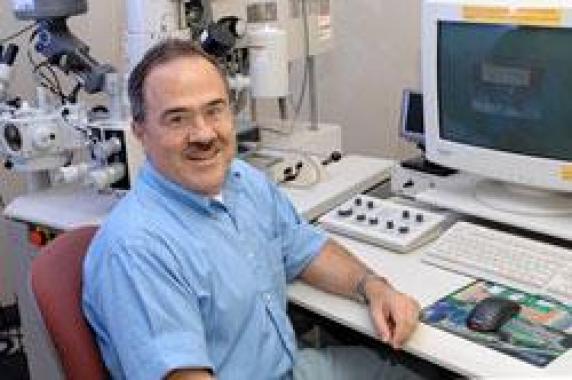
The Society for Biological Engineering is happy to announce Dr. Eleftherios Terry Papoutsakis as the winner of the 2013 D.I.C Wang Award for his transformative contributions in metabolic engineering & clostridial biotechnologies, cell-culture engineering, and stem-cell biotechnologies. His talk at the 2013 AIChE Annual Meeting is entitled "Force to death and new life, some with programming vitality". It takes place on Monday, November 4, 6pm to 7pm. Read abstract below.
Force to death and new life, some with programming vitality
Regenerative medicine is the quest to provide biological or hybrid synthetic-biological materials that can enable or facilitate therapeutic interventions, from transfusions and gene therapy to organ replacement. A long-standing goal is to ability to produce human blood cells for transfusion medicine. Among blood cells, platelets, needed for blood coagulation and vascular repair, are an expensive “product” in limited supply. This is due to the collection and processing steps from donated blood, and the fact that platelets cannot be frozen, but also due to the possibility of bacterial or blood-borne pathogen contamination. Can we produce platelets in a “blood factory”? This is recognized as a grand challenge that remains largely elusive. Platelets are produced from the large, polyploidy megakaryocytes (Mks) in the bone marrow and the lung vasculature, under a spectrum of biomechanical forces. I will discuss these forces and show how important they are for producing functional proplatelets and other, small, anuclear particles, which we classify as Mk microparticles (MkMPs). I will show the extraordinary ability of these MkMPs in programming stem and progenitor cells, and discuss their potential as a means for targeted delivery of nucleic acids and proteins. I will also discuss our explorations aiming to understand the mechanisms by which MkMPs act, and will argue for producing and using them for regenerative-medicine applications.
